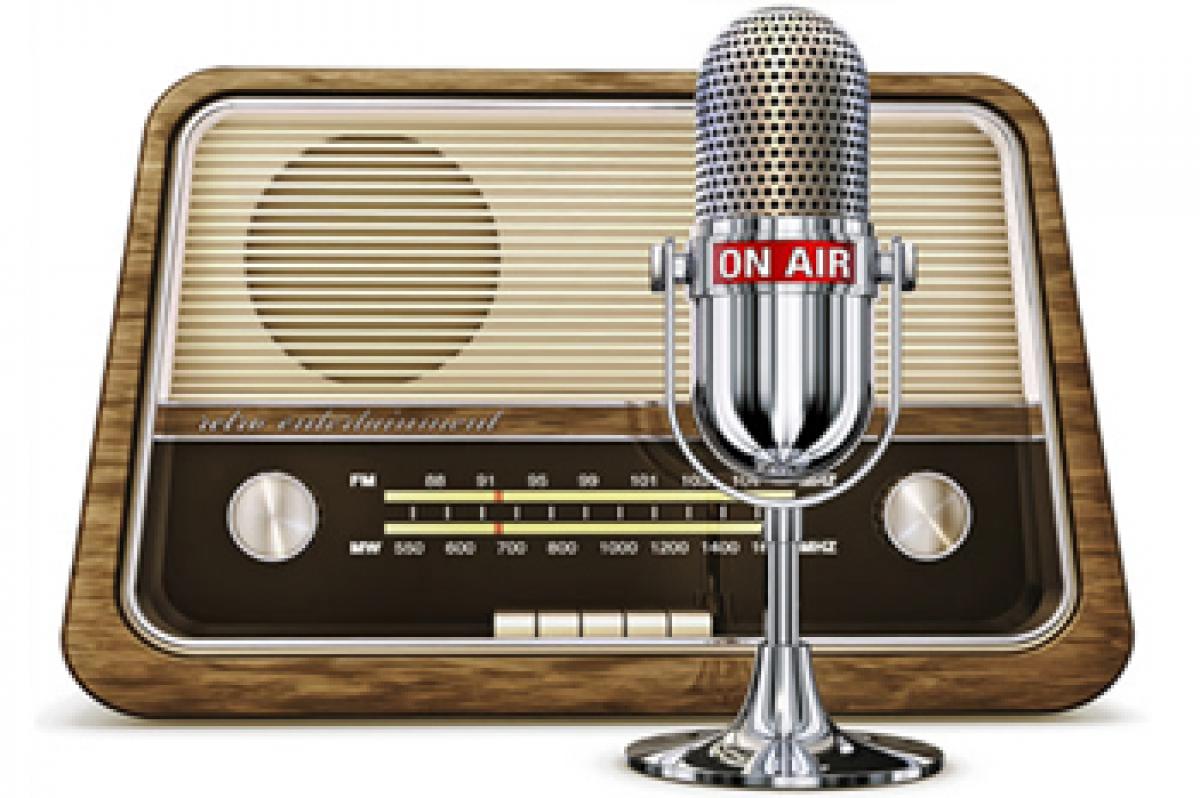Live
- Indian pharma companies set to make further progress in US market in 2025: HSBC
- High Court Grants Relief to Mohan Babu, Orders Surveillance at Residence
- Techie from Prakasam dies in road accident in London
- Every Adult Has a Child Within Them: M. Nasser on the Universality of Mufasa
- Family Suicide Attempt Claims Three Lives in Mancherial District
- Manchu Manoj Calls for Justice and Trusts in Police
- Surge in construction of illegal farmhouses in Aravallis, Sohna Council issues notice
- Karnataka BJP Criticizes Siddaramaiah Over Wayanad Housing Project
- Lathi-charge on students in Hazaribagh kicks up political row; demand for CBI probe grows
- India’s growth to rebound to 7 pc in 2025-26: Report
Just In

Radio has been a part of living for millions of people across the globe. It is considered a truly mass medium of the common man. Older generation goes gaga over their memories with the radio.
World Radio Day today
Radio has been a part of living for millions of people across the globe. It is considered a truly mass medium of the common man. Older generation goes gaga over their memories with the radio.
My mother, K Padma Raja Mouli, 76, once told me proudly that one of the precious gifts she brought to her in-laws house at the time of her marriage five decades ago was a big radio set. And no wonder, she reminisces happily, gave her a mini celebrity status at her in-laws village.
The UNESCO has declared that this year’s theme for the World Radio Day, which is celebrated every year on February 13, is the “Radio in Times of Emergency and Disaster.”
Coinciding with the United Nation’s Radio establishment on 13th February in 1946, the day has been declared as the World Radio Day through a resolution in United Nations in 2011.
The radio, which was feared on its way to be a ‘dead medium’ not so long ago has reinvented itself as the modern mass medium on the move. The new found popularity is in its ability to effectively ride on the FM wave and tune itself to the modern day demands and tastes.
It has now achieved a rare distinction of being a mass medium to be available and accessible to every person who is having a Smart Phone or a better feature phone that has radio tune in facility.
The World Radio Day is also observed with a motto – “a day to celebrate radio as a medium; to improve international cooperation between broadcasters; and to encourage major networks and community radio alike to promote access to information, freedom of expression and gender equality over the airwaves.”
For the current year’s theme of “Radio in Times of Emergency and Disaster,” it is to highlight and acknowledge the role of radio in times of emergency and disaster. Radio still remains the medium that reaches the widest audience worldwide, in the quickest possible time.
Through this year’s World Radio Day, UNESCO aims to promote five goals: Freedom of expression and journalists’ safety; and Radio empowers survivors and vulnerable people, whose right to privacy is to be respected.
Radio has social impact and provides access to information. People’s right to information should be protected even in times of emergency and disaster. Radio saves lives.
And the immediate accessibility of radio frequencies is essential to saving lives. These frequencies should be protected so they are available in times of emergency.
Radio is one medium that can be restored and can be operational in quickest possible time in times of calamities and is of an immense help to the people. It is also recognised as the true democratiser as far as accessibility to mass media is considered.
It is a common practice for fishermen venturing into the seas to listen to the radio broadcasts on weather and plan their fishing in accordance with the forecast given by the radio broadcasts. The radio’s role in agriculture is widely acknowledged.
Being portable, empowering, easy access and easy production and distribution of content and with no or negligible costs, the radio remains the true mass medium of the common man. It is a mass medium on the move and not a surprise that majority of the cars that dot the city roads tune in to a wide variety of FM stations.
India’s tryst with the radio has a long history. Even before the Marconi got the first patent for radio in 1897, it was Jagadish Chandra Bose who ‘rang a bell’ without any wire connection in 1894 in Kolkata.
From the days of requiring a licence and licence fee to have a radio set at home to the multiplying community radio stations and FM radio revolution, radio has been connecting billions of people across the globe and serving them infotainment of par excellence.
From the everlasting memories of listening to the Chhaya Geet, Man Chahe Geet to Jaya Mala to the present-day Mann Ki Baat of the Prime Minister Narendra Modi, radio remains the soothing mass medium to the thirsty souls.
And it is a true companion to all those who dwell in loneliness. It is not a mean fact that All India Radio covers a massive 99.19 per cent of the Indian population. (The author is Head, Department of Mass Communication, Telangana University, Nizamabad)

© 2024 Hyderabad Media House Limited/The Hans India. All rights reserved. Powered by hocalwire.com







